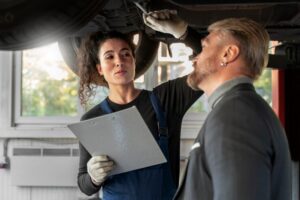
Need a Call? 123-4560-789


Sign up our newsletter to get update information, news and free insight.
Owning a vehicle means more than just driving—it also means understanding the basics of what makes your car work. Whether you’re a new driver or just looking to be more informed, knowing the essential parts of your vehicle can help you better maintain it, communicate with mechanics, and even avoid costly repairs. Below are the top 10 auto parts you should know about.
Often referred to as the heart of your vehicle, the engine is what powers your car. It converts fuel into mechanical energy, allowing your vehicle to move. Regular oil changes and maintenance are crucial to keeping the engine healthy.
The battery supplies electrical power to start the engine and run components like lights, radio, and the air conditioning system. A dead battery is one of the most common reasons for vehicle breakdowns.
While the battery starts your car, the alternator keeps it running. It charges the battery and powers your electrical systems while the engine is on. If your headlights dim while driving, the alternator could be the issue.
The brake system includes brake pads, rotors, calipers, and brake fluid. It’s essential for your safety and should be inspected regularly. Squeaking or grinding noises are signs your brakes may need attention.
The transmission ensures that power from the engine is delivered to the wheels at the right speed. Whether it’s automatic or manual, keeping the transmission fluid clean is key to preventing problems.
The radiator keeps your engine cool by circulating coolant. If the radiator fails, the engine can overheat, causing serious damage. Make sure your coolant levels are checked regularly.
This includes shocks, struts, and springs. The suspension ensures a smooth ride and helps maintain control over the vehicle. If your car feels bumpy or unstable, the suspension might be worn out.
The exhaust removes harmful gases from your engine and reduces noise. It includes parts like the muffler and catalytic converter. A faulty exhaust system can affect your car’s performance and emissions.
Tires are your car’s only contact with the road. Proper tire pressure, rotation, and tread depth are essential for safety and fuel efficiency. Always keep a spare tire and know how to check tire condition.
This system includes the fuel pump, fuel filter, and injectors. It delivers fuel from the tank to the engine. If you notice decreased performance or trouble starting, your fuel system may need inspection.